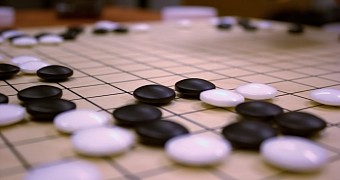After losing the first three matches in a five-game series, Go world champion Lee Sedol has finally won a game against Google's AlphaGo artificial intelligence (AI) game engine.
Ever since IBM's Deep Blue computer beat Garry Kasparov in a chess match in 1997, scientists have quickly moved on to trying to create an algorithm that could beat human players at Go, a game that is considered much more complex than chess.
Prior to Google developing AlphaGo, there had been various encounters between human Go champions and Go-playing computer software, most of which ended up with the human player winning, or the software winning, but only when the human played with a handicap.
AlphaGo played against itself to get better
AlphaGo has been developed in the past years by Google's DeepMind team, which proceeded to train the system by feeding it a database of 30 million possible Go moves, and later set it to play against itself for months to harden its creative thinking.
The AI engine was first showcased last fall, when AlphaGo defeated European Go champion Fan Hui, a Chinese-born French player. AlpahGo won with a spectacular 5-0 score in a five-game series.
Urged by its success, Google set up another round of matches, this time against 18-time world champion Lee Sedol from South Korea.
This game series is taking place between March 9 and March 15, 2016, and has a $1 million game pot, which, if AlphaGo wins, the company announced it would be donating to charity. Lee Sedol was paid $150,000 for his participation, and he'll be earning an additional $20,000 for each victory.
AlphaGo won the series after winning the first three matches
With AlphaGo winning the first three matches, the Google team ensured it won the five-game series, but the world's eyes remained fixed on the encounter, mainly to see if Sedol would be able win at least one game "for us humans."
This happened today, but the way in which AlphaGo has soundly beaten human players in the last months has made it clear once again that the level of AIs these days has gone way above the silly algorithms that were once only capable of powering industrial robots.
With Go game commentators often mislabeling AlphaGo's movements as mistakes, Google's team has created a monumental piece of engineering that in its present state has clearly shown that it can mimic human creative thinking, at least in the game of Go.
The fifth game is scheduled for Tuesday, March 15, 2015. You can watch it live on Google's DeepMind YouTube channel.
Lee Sedol wins game 4!!! Congratulations! He was too good for us today and pressured #AlphaGo into a mistake that it couldn’t recover from — Demis Hassabis (@demishassabis) March 13, 2016

 14 DAY TRIAL //
14 DAY TRIAL //